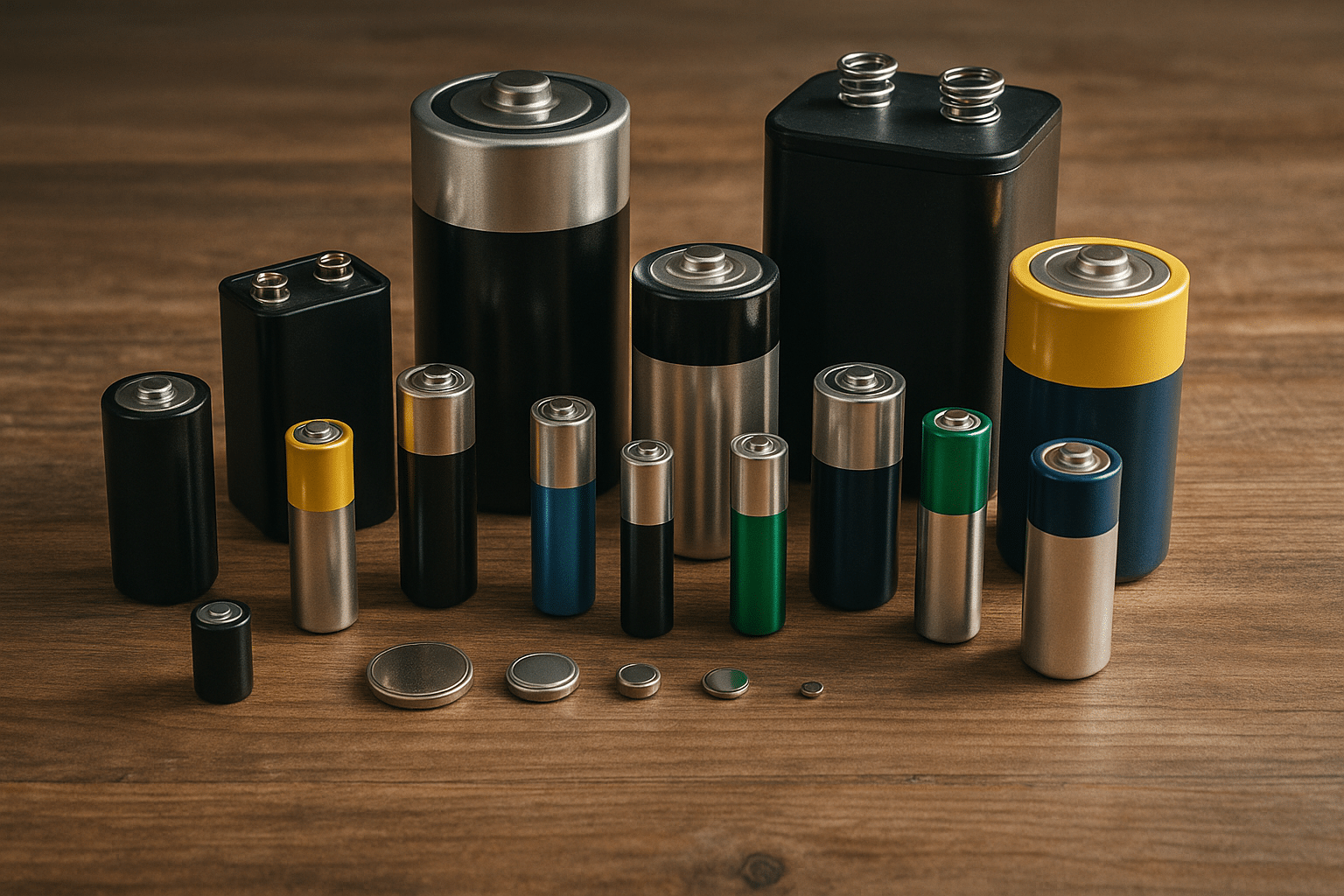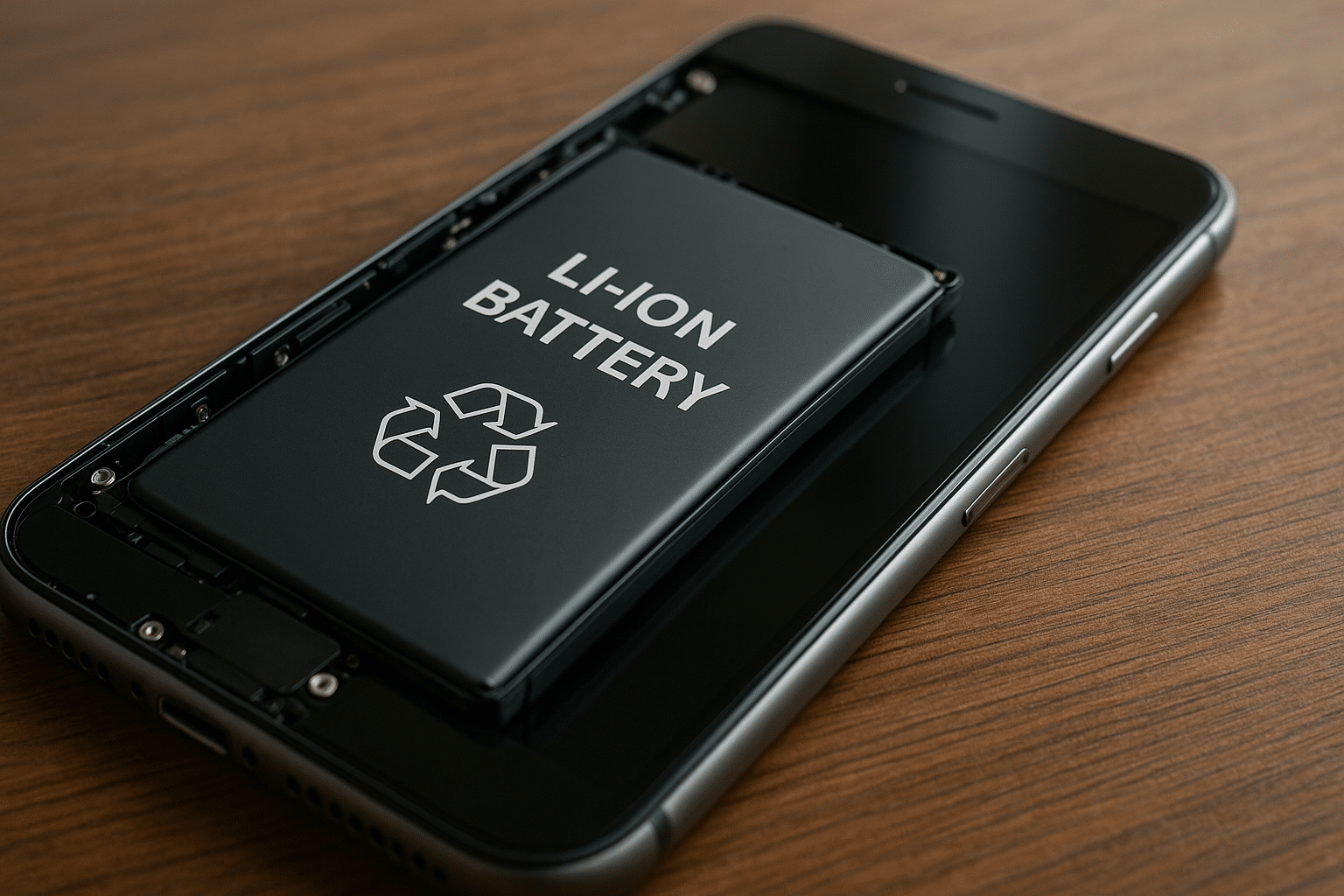
Comprehensive Guide to Battery Types: Uses, Advantages, and Limitations
In our increasingly electronic world, understanding battery types is crucial for tech-savvy consumers and DIY enthusiasts. Batteries power our gadgets, tools, and even vehicles, but not all batteries are created equal. This guide will explore the different types of batteries available, highlighting their uses, advantages, and limitations. By the end of this article, you’ll have a clearer understanding of which battery type best suits your needs.
What Are the Different Types of Batteries?
Batteries come in various forms, each designed for specific applications. The primary types include alkaline, lithium-ion, nickel-metal hydride, and lead-acid batteries. Each type has unique characteristics that make them suitable for different uses, from powering small gadgets to running large vehicles. For more details, you can check out Battery types explained.
Key Differences Between Battery Types
- Alkaline: Affordable and easy to find, but non-rechargeable.
- Lithium-ion: High energy density, ideal for portable electronics.
- NiMH: Rechargeable with a moderate capacity, eco-friendly.
- Lead-Acid: High power for larger applications, but heavy.
- Each type varies in cost, lifespan, and environmental impact.
- Some batteries are better for high-drain devices, others for long-term storage.
- Temperature sensitivity varies among battery types.
Understanding Alkaline Batteries
Alkaline batteries are among the most common types found in household items such as remote controls, clocks, and flashlights. They are known for their affordability and availability, making them a popular choice for everyday use. Alkaline batteries are non-rechargeable, which means they need to be replaced once depleted. While they offer a decent lifespan for low-drain devices, they are not suitable for high-drain electronics due to their limited energy capacity.
The primary advantage of alkaline batteries is their cost-effectiveness. However, they do have environmental drawbacks, as they contribute to waste when disposed of improperly. Despite this, they remain a staple for many household applications due to their convenience and low upfront cost. For those looking for a simple, disposable power source, alkaline batteries are an excellent option.

Exploring Lithium-Ion Batteries
Lithium-ion batteries are a popular choice for portable electronics such as smartphones, laptops, and tablets. Known for their high energy density, these batteries offer a longer lifespan and more charge cycles compared to other types. Lithium-ion batteries are rechargeable, making them a cost-effective solution for devices that require frequent charging. Their lightweight design and ability to retain charge make them ideal for modern gadgets.
Despite their advantages, lithium-ion batteries have some limitations. They are sensitive to high temperatures and can be costly compared to other battery types. Proper handling and storage are essential to prevent overheating and extend their lifespan. Overall, lithium-ion batteries are a powerful and efficient choice for those seeking a reliable energy source for their portable devices.
Comparison Table of Battery Types
| Battery Type | Common Uses | Advantages | Limitations |
|---|---|---|---|
| Alkaline | Remote controls, flashlights | Inexpensive, widely available | Non-rechargeable, limited lifespan |
| Lithium-ion | Smartphones, laptops | High energy density, rechargeable | Costly, sensitive to high temperatures |
| Nickel-Metal Hydride (NiMH) | Digital cameras, toys | Rechargeable, environmentally friendly | Self-discharge, lower capacity than lithium-ion |
| Lead-Acid | Cars, backup power systems | Reliable, high power output | Heavy, requires maintenance |
The Role of Lead-Acid Batteries
Lead-acid batteries are primarily used in automotive applications and backup power systems. Known for their reliability and high power output, these batteries are capable of delivering the necessary energy to start vehicles and power large systems. They are one of the oldest types of rechargeable batteries and have a proven track record in various industries.
However, lead-acid batteries have some drawbacks, including their heavy weight and the need for regular maintenance. They also have a shorter lifespan compared to newer battery technologies. Despite these limitations, their cost-effectiveness and ability to deliver high power make them an enduring choice for applications where weight is not a primary concern.
Summing Up the Battery Types
Understanding the different types of batteries is essential for selecting the right power source for your needs. Alkaline batteries offer a cost-effective solution for low-drain devices, while lithium-ion batteries provide high energy density for portable electronics. NiMH batteries are an eco-friendly option for rechargeable needs, and lead-acid batteries deliver reliable power for automotive and backup systems.
Each battery type has its unique advantages and limitations, making it crucial to consider your specific requirements before making a decision. For those looking to purchase batteries and chargers, explore options available at Viking Direct to find the best match for your needs.
Frequently Asked Questions
What is the best battery type for high-drain devices?
Lithium-ion batteries are generally the best choice for high-drain devices such as smartphones and laptops. They offer high energy density and longer lifespan, making them suitable for devices that require frequent charging. Their rechargeable nature also provides a cost-effective solution over time.
Are alkaline batteries environmentally friendly?
Alkaline batteries are not considered environmentally friendly due to their disposable nature. They contribute to waste when discarded improperly. However, some manufacturers offer recycling programs to mitigate their environmental impact. It’s advisable to explore rechargeable options if environmental concerns are a priority.
Can NiMH batteries replace alkaline batteries?
Yes, NiMH batteries can replace alkaline batteries in many applications. They are rechargeable and offer a more environmentally friendly solution. However, they may have a lower capacity than alkaline batteries, which could result in more frequent recharging. They are ideal for devices that are used regularly and require frequent battery changes.
How do I maintain lead-acid batteries?
Maintaining lead-acid batteries involves regular checks and proper storage. Ensure that they are kept fully charged when not in use to prevent sulfation. Regularly check the electrolyte levels and top up with distilled water if necessary. Proper maintenance can extend the lifespan and efficiency of lead-acid batteries.












